Stereoscopic analysis: Difference between revisions
Jump to navigation
Jump to search
m (minor text) |
(→See also: ...) |
||
| Line 55: | Line 55: | ||
* [http://hugin.sourceforge.net/ Hugin] (stiches images together into panoramas) and [http://hugin.sourceforge.net/docs/manual/Autopano-sift-C.html Autopano tools] (finds control points in overlapping image pairs) | * [http://hugin.sourceforge.net/ Hugin] (stiches images together into panoramas) and [http://hugin.sourceforge.net/docs/manual/Autopano-sift-C.html Autopano tools] (finds control points in overlapping image pairs) | ||
[[Category: FAQ]] | [[Category: FAQ]] | ||
[[Category:Image processing]] | [[Category:Image processing]] | ||
[[Category:Visualization]] | [[Category:Visualization]] | ||
[[Category:NVIZ]] | [[Category:NVIZ]] | ||
Revision as of 20:25, 9 September 2013
GRASS 5
Creating a DEM from overlapping images
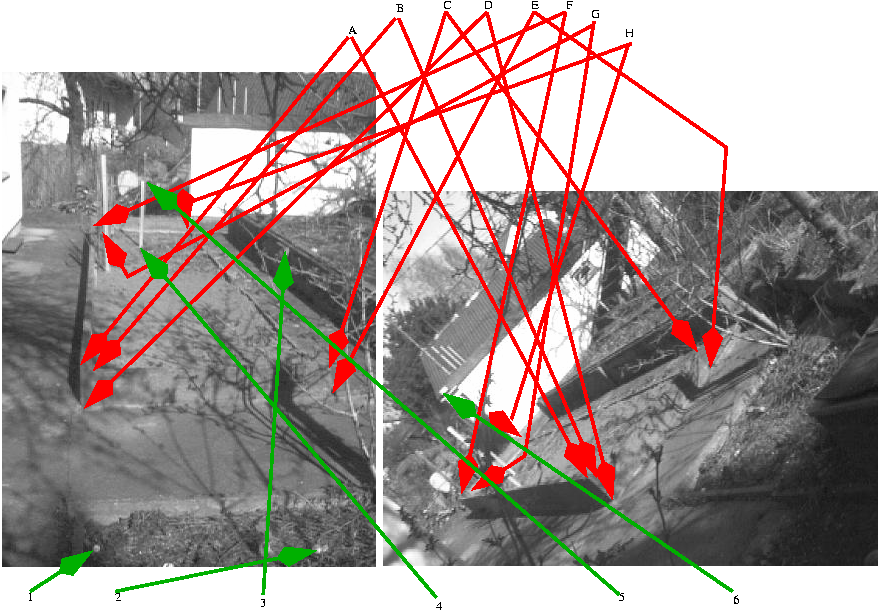
There is some old GRASS 5 software in
which does this job. It awaits integration into GRASS 6+.
Tutorial: http://grass.osgeo.org/gdp/stereo-grass/index.html
GRASS 6
- Viewing existing data as stereo 3D
The d.anaglyph addon module provides an easy way to create 3D anaglyphs and stereographs. It uses the m.nviz.image module to render two viewpoints, then from those two images composes the 3D image into a single PNG file. In time it should be possible to port this functionality into NVIZ itself.
Anaglyph
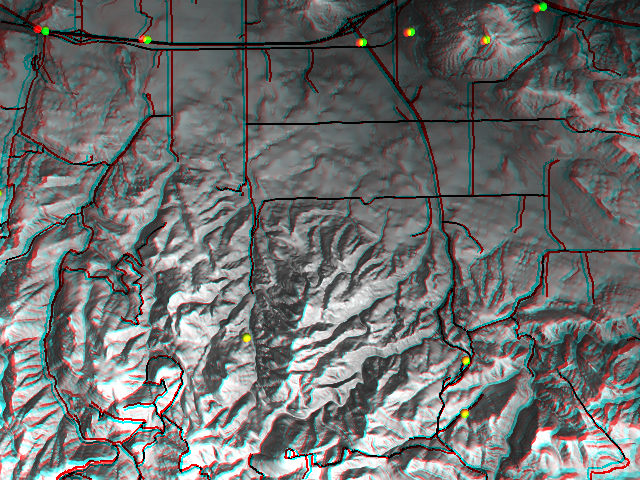 |
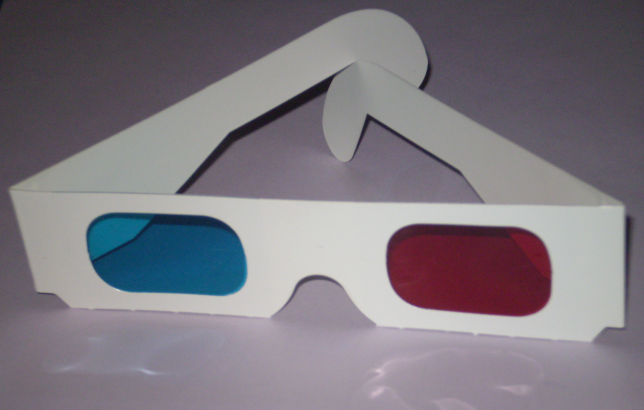 |
Stereogram
 |
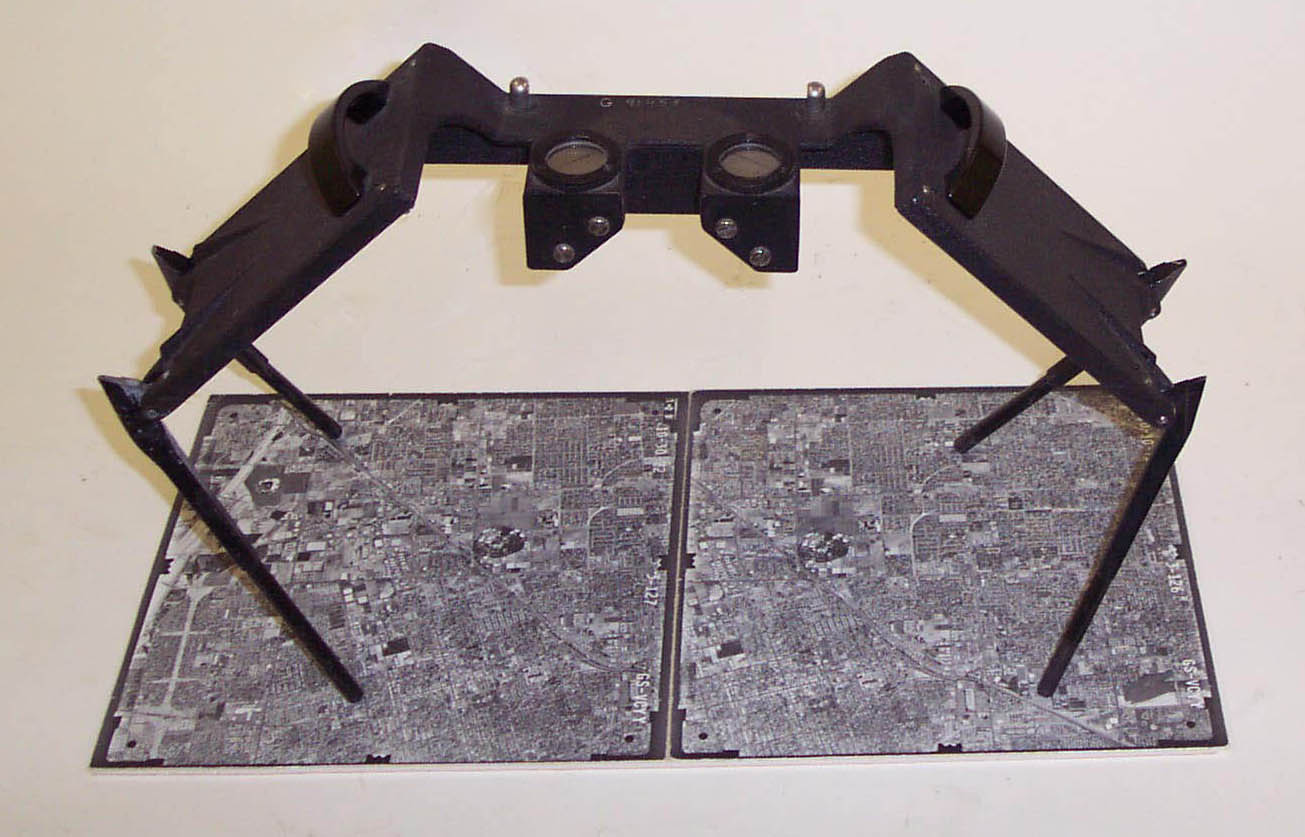 |
"Free-view" Stereogram
- No special viewing equipment needed: just focus into the distance or cross your eyes.
- Here is a nice how-to-view article
- Screenshot: (created with the d.anaglyph module)
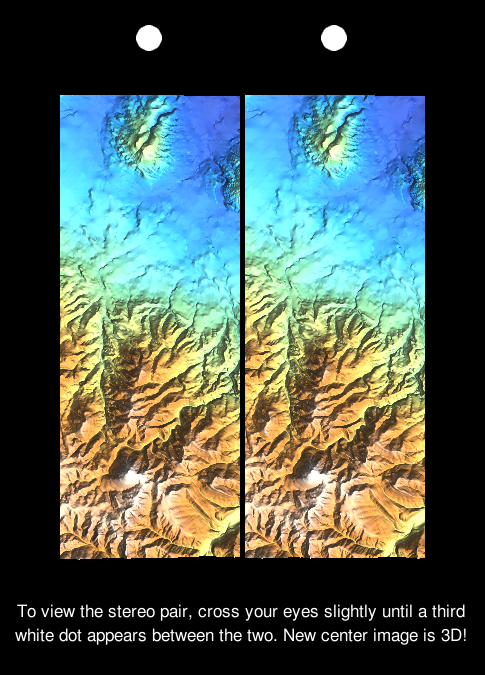
See also
- The Stereo anaglyphs wiki page
- Principles of Photogrammetry: Stereoscopic Parallax
- nasa/StereoPipeline: The NASA Ames Stereo Pipeline is a suite of automated geodesy & stereogrammetry tools designed for processing planetary imagery captured from orbiting and landed robotic explorers on other planets
- e-Foto is a free educational digital photogrammetric workstation for Mac, Linux, Windows; GNU GPL
- Hugin (stiches images together into panoramas) and Autopano tools (finds control points in overlapping image pairs)